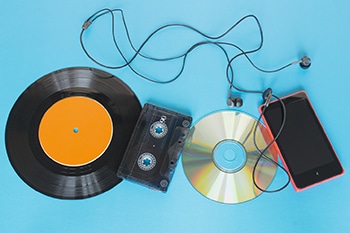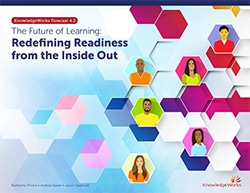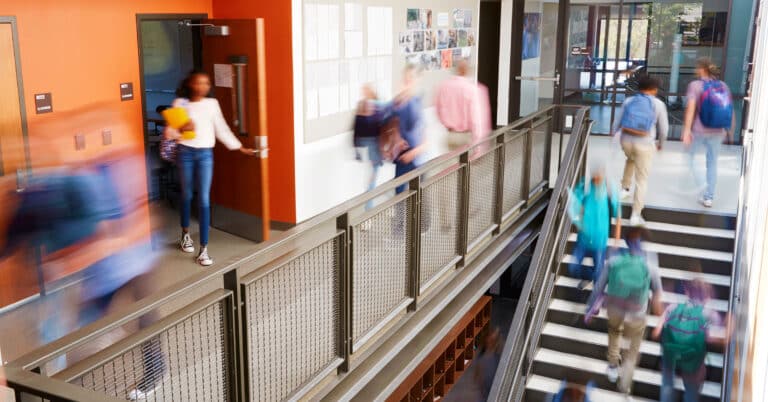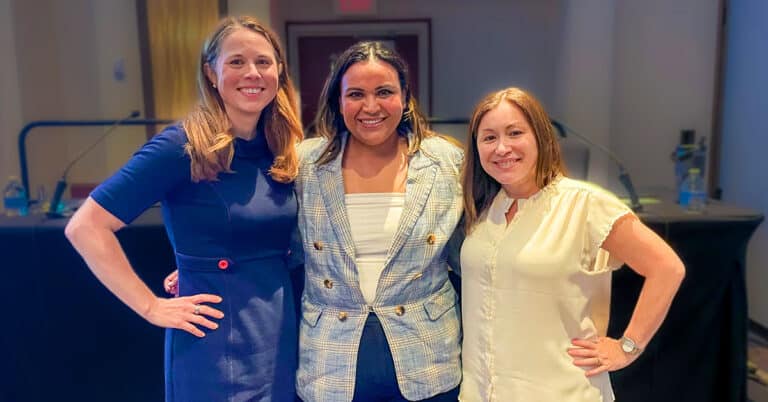 Asking educators to imagine the world of 2040 seems like a stretch, but when you take a moment to think about how the working world has changed since you had your first job, it becomes a lot easier to imagine how things might be drastically different for our future graduates.
Asking educators to imagine the world of 2040 seems like a stretch, but when you take a moment to think about how the working world has changed since you had your first job, it becomes a lot easier to imagine how things might be drastically different for our future graduates.
We recently had the opportunity to challenge ourselves to think about what’s changed, and the experiences of two long-time staff, Nancy Arnold, executive assistant, and Vicki Tallarigo, office manager and executive assistant, were particularly illuminating. They exchanged ideas about how those changes were often as exciting as they were challenging.
What’s one change you’ve seen in your work?
“There was no voicemail – the only way to leave someone a message was having a receptionist or administrative assistant take one by hand,” said Tallarigo. “With the implementation of computerized and digital systems, tasks like taking a message have been drastically transformed, and are so much more efficient. While some found it a little scary, once the reality of how much time was freed up to support other business needs in our environment people jumped in with both feet.”
For Arnold, it was the shift from a manual typewriter to an electric typewriter.
“I could type faster and I had an erase key – that was amazing,” said Arnold. “And we made copies on a mimeograph machine or by using carbon paper when we were typing.”
What’s a change you experienced that was scary but turned out okay?
 Arnold was initially unsure about using computers – but they’ve since become integral to her work.
Arnold was initially unsure about using computers – but they’ve since become integral to her work.
“I didn’t think I would ever be able to learn how to use a computer,” Arnold said. “Word processing was such a unique concept, and I’m always learning. Excel, PowerPoint, etc. What’s next?”
When Tallarigo had to move away from paper filing systems, she was initially wary.
“For many years, there was a great comfort in knowing that we could get what we needed simply by walking to a cabinet and pulling out the needed information,” said Tallarigo. “Back then, it was very hard to imagine managing all of that information without paper copies at our fingertips. Looking back, I can see that my mindset has evolved – now I prefer not to have things in paper form. It’s more efficient, secure, better for the environment and less expensive.”
What is a change you are (or were) excited about?
 Tallarigo notes that her personal as well as her professional life have benefited from innovation.
Tallarigo notes that her personal as well as her professional life have benefited from innovation.
“Recently I’ve been trying to gather a lot of my music collection in one place and discovered that so much of what I once had in other forms is now available digitally through places like Apple Music and Spotify. Seeing items once not available even in CD format is really cool – and it’s opened up opportunities to find music that I thought I’d never listen to again because of the format in which it was originally recorded in,” Tallarigo said. “I think that speaks to the fact that many of the innovations we are experiencing can actually connect the past to the future and allow us to bring our memories and experiences along with us.”
And for Arnold, the computer she once felt so unsure about has become the thing she values most.
“I see how much more improved the world is because of it,” Arnold said. “When I think of the changes I’ve seen in my forty plus years in the work force, I am amazed. Can you imagine a world without Facebook? Without Twitter or blogs or Snapchat? I’m excited to see what’s ahead. Because of internet access, the world awaits!”






